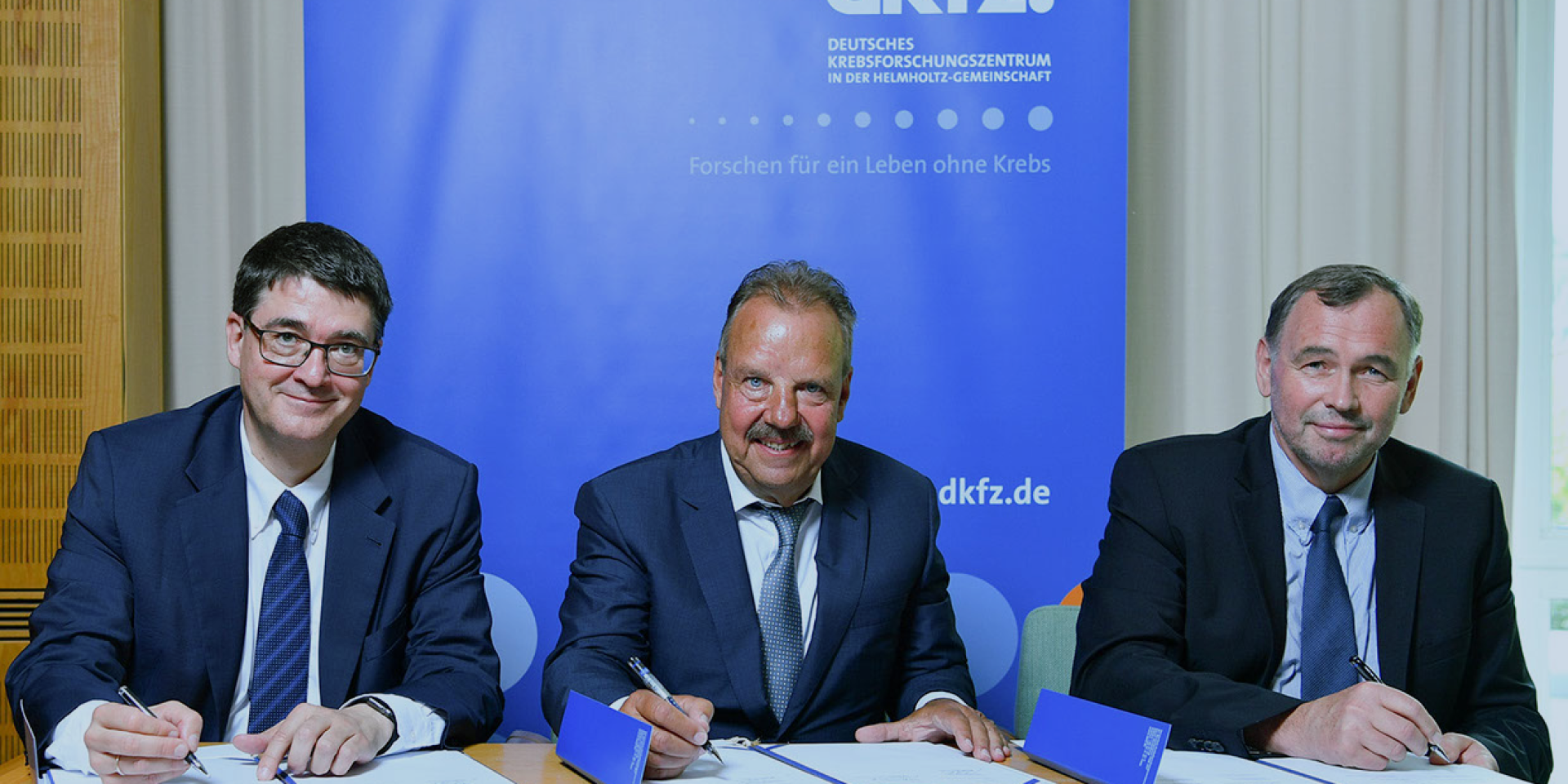DIETER MORSZECK FOUNDATION
Outstanding commitment to the German Cancer Research Center
DKFZ press release from July 30, 2018
Cologne-based entrepreneur Dieter Morszeck, former Managing Director and owner of RIMOWA, transferred part of his assets to the Dieter Morszeck Foundation in 2017. The foundation has three main focuses – supporting cancer research is one of them. The foundation provides around 35 million euros in private research support to the German Cancer Research Center. It is thus supporting five promising projects.
His sister’s cancer gave Dieter Morszeck the idea of supporting cancer research. This is how the contact with the German Cancer Research Center (DKFZ) came about. “We took a look at the center and were able to convince ourselves that the research here was useful and good. I was very impressed by the DKFZ’s position in Europe and the world,” said Morszeck when signing the contracts for the individual projects. “So my donation can also be seen as a thank you for my sister’s commitment.”
“At the DKFZ, we focus on the patients of tomorrow, to whom we want to offer better therapies,” says Michael Baumann, Chairman of the DKFZ Executive Board, on the occasion of the signing of the agreement. “In order to achieve this, we must continue to deliver scientific excellence – both in research and in the development of personalized precision oncology. The funding from the Morszeck Foundation is a wonderful support.”
“Innovative cancer research is associated with considerable costs. Private research funds, especially such an enormous sum as the 30 million euros from the Dieter Morszeck Foundation, help us to take up promising projects and realize them much faster,” says Josef Puchta, Commercial Director of the DKFZ, delighted with the financial support.
Dieter Morszeck intends to follow the projects he supports at the DKFZ with interest and promises: “This is not the end, but just the beginning of a long-term cooperation.” An example that is second to none.
With the funds from the Dieter Morszeck Foundation, the DKFZ will construct a building for the fully and semi-automated collection of biosamples. Until now, the collection of these blood and tissue samples, which are so important for prevention research, has required laborious manual work, which will be carried out by robots in the new “biorepository”.
The DKFZ intends to close the current gap in the transition from preclinical development to use in patients with a newly established research group for imaging and image-guided therapies. Another new junior research group aims to advance the early detection of cancer by combining molecular diagnostics, such as liquid biopsy, with powerful imaging techniques.
Today, single cell genomics makes it possible to better understand the molecular diversity of tumor cells. In the long term, these results can contribute to the development of more effective therapies. With the help of the Dieter Morszeck Foundation, the DKFZ is able to set up a research group and a laboratory unit for single cell analysis. Another important concern of the DKFZ is to train the next generation of researchers and researching physicians. With a funding program that accepts five to eight clinician scientists per year, the DKFZ can now make a decisive contribution to the training and further education of young talent in this important professional group.
More information: Deutsche Krebsforschungszentrum (DKFZ)




